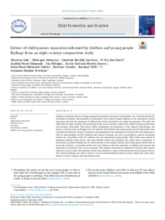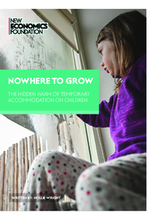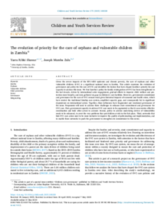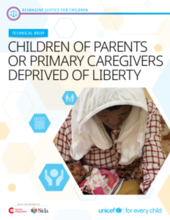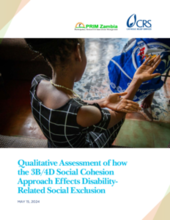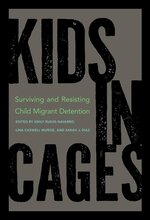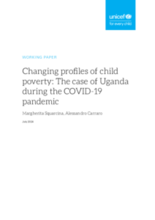Displaying 1 - 10 of 505
This article presents research from eight countries showing that many child–family separations are preventable, with children and young people identifying common drivers of separation rooted in unmet basic needs and broader socio-economic pressures. The study concludes that strengthening laws, policies, and access to essential services—guided by the lived experiences of children—can help keep families together and reduce reliance on alternative care.
This report exposes the severe harm temporary accommodation inflicts on children’s health, education, and wellbeing, with over 160,000 affected across England and rising numbers in London, particularly Southwark. It calls for urgent reforms—including stronger accountability, better inter-agency coordination, and dedicated support roles—to protect children’s rights and prevent lasting damage.
Given the severe impacts of the HIV/AIDS epidemic and chronic poverty, the care of orphans and other vulnerable children (OVC) is a significant national issue in Zambia. This article examines the evolution of governance and policy for the care of OVC and identifies the factors that have shaped Zambia’s priority for and capacity to address this issue.
This brief explores how the detention or imprisonment of a parent or primary caregiver affects children’s rights, well-being, and development, often exposing them to stigma, instability, and reduced access to essential services. It calls for child-sensitive justice processes, greater use of alternatives to detention, and coordinated support systems that prioritize the child’s best interests at every stage.
The Qualitative Assessment of How the 3B/4D Social Cohesion Approach Effects Disability-Related Social Exclusion in Zambia by Catholic Relief Services (CRS) highlights the Inclusive Family Strengthening (IFS) project's significant impact on reducing disability-related social exclusion. The project utilized introspection, intragroup and intergroup connections, and action to foster empathy, acceptance, and support for children with disabilities.
This article explores the complex landscape of alternative care for orphaned and vulnerable children in Afghanistan against the backdrop of prolonged conflict, political turmoil and socio-economic challenges.
This interdisciplinary work brings together voices from the legal realm, the academic world, and the on-the-ground experiences of activists and practitioners. At the heart of these narratives lies a crucial debate: the tension between harm-reduction strategies and abolition.
Case studies from Peru, Cambodia and DRC provide lessons on how income support can contribute to keeping children safe.
This study examines the socioeconomic determinants of COVID-19-induced poverty among households with children in refugee-hosting districts of Uganda, comparing refugee and host households. It also investigates the role of social assistance in preventing poverty.
In this webinar, community providers discussed the challenges they face in providing responsive services, including building evidence and operating in the context of restrictive “evidence-based” standards, as well as recommendations for actions state and federal policymakers can take to ensure all families have the support they need through expanding access and availability of programs that are developed by and for communities of color.

